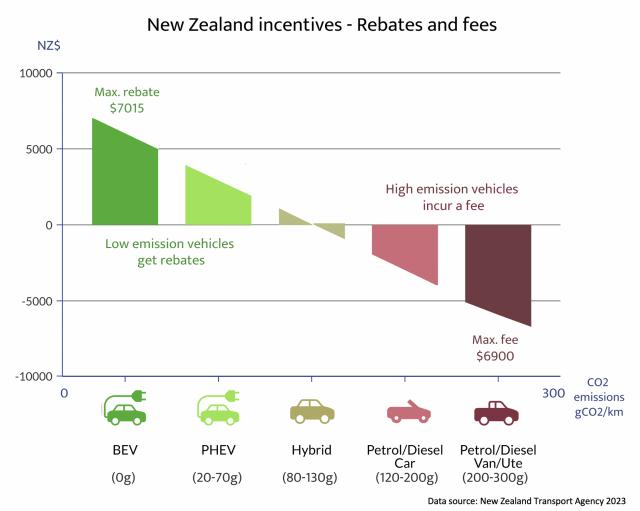In our previous ZEN article, we promised that today’s story would highlight the positives in Australia’s EV market, but also explain why the popularity of EVs has caused increased sales of dental floss.
Let’s begin with that puzzle.
A global EV giant somehow imagined that Australians would rush to buy a model whose tailgate was embossed – in gorgeous cursive metal – with a three-word slogan more likely to be tossed around in a ’60s-era commune.
Two years on, that BYD Atto 3 is second only to the Tesla Y in Australian EV sales.
Still, for some owners that utopian script – Build Your Dreams – was just too much. It had to go and, courtesy of dental floss, elbow grease and a helpful YouTube DIY, many of those BYDs now sport nameless tailgates.
The tailgate story is a segue to our other promise to highlight the positives in Australia’s EV market.
That market is small but booming.
In 2021, total EV sales were 20,665. Last year the total was 39,353. By early August this year, sales had already passed 50,000. As a percentage of new car sales, those numbers equate to two per cent (2021), four per cent (2022) and eight per cent (2023 to August). (Source: Electric Vehicle Council 2023)
A number of factors underpin this boom.
Most obvious is supply. The Covid-era shutdowns and disruptions to supply chains have largely ended.
Shiploads of EVs are arriving in Australia. But raw numbers are only part of the story.
Choice is a vital factor with over 40 models already available. They vary widely in size, style, carrying capacity, power, range and – crucial for most buyers – price.
In late June – after a glitzy launch on the Gold Coast – Chinese brand BYD started taking orders for its Dolphin.
David Waterworth, Australian contributor to the US-based CleanTechnica website, describes the BYD Dolphin as a likely Corolla-killer. The title carries great meaning, as Toyota has cleverly positioned the Corolla as the quintessential Aussie car in the hearts of Australian drivers.
Amid the EV boom, Toyota has pinned its hopes on the Corolla hybrid, not on a fully electric EV. Waterworth sees the Dolphin as matching and probably exceeding the Corolla hybrid on key criteria – particularly price.
The Dolphin will be Australia’s most affordable fully-electric EV. At a drive-away price around $40,000, and with the Queensland government’s current rebate of $6,000, the Dolphin will cost around $34,000. In drive-away price, the Dolphin will compete with not only the Corolla hybrid, but also the cheapest petrol Corolla. This price will finally nudge the touchstone – a five-seater EV as affordable as Australia’s most popular internal-combustion alternative (ICEV). Let the contest begin!
Availability and affordability are crucial factors in the nascent boom in EV uptake in Australia. But much more is needed as Australian EV sales grow towards 10 per cent of the car market.
Government incentives are important. Queensland’s current $6000 rebate is the most generous among the Australian states, but is tipped to run out by year’s end. Overall, Australian incentives fall far short of the Norwegian largesse described in our previous article. And they don’t match New Zealand’s stark ‘carrot and stick’ approach, seen in this graph. Over the ditch, choosing an EV over a particular ICEV can reap you a benefit of almost $14,000NZ.
Other incentives encourage EV uptake: petrol-free motoring; lower servicing costs; and improved EV-charging infrastructure, especially for Australians who want to roam the continent. In April, federal minister Chris Bowen announced a partnership with NRMA to build a national charging network of 117 fast-charging stations on major highways.
One will be in Eumundi. Bowen enthused that ‘We’re making range anxiety a thing of the past’.
From ZEN INC’s perspective, the overriding incentive for EV uptake is less tangible but inestimably more important. EVs reduce harmful emissions, a vital step towards a safe, sustainable future.
* ZEN Inc provides information about, but does not make recommendations about projects and services related to renewable energy and sustainable transport. It is not liable for any losses incurred through your subsequent use of that information.








